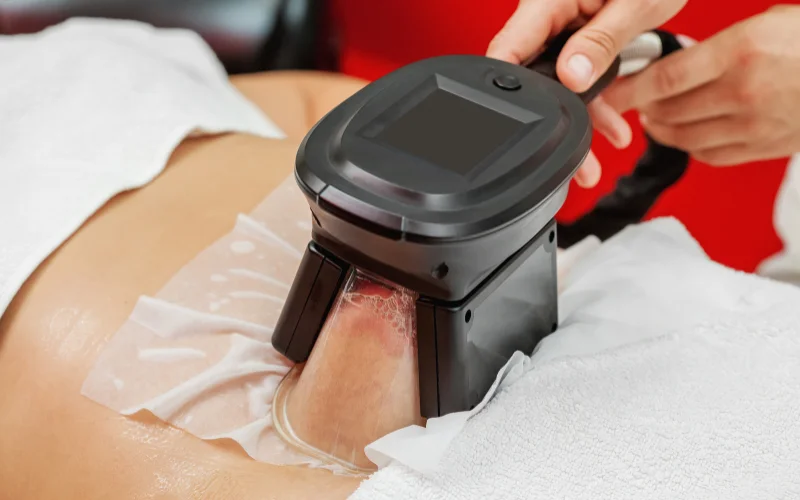Canker sores, also known as aphthous ulcers, are small, painful lesions that can appear inside the mouth, making eating, drinking, and even talking uncomfortable. While these sores typically heal on their own within one to two weeks, there are ways to expedite the healing process. In this article, we will explore effective methods on how to get rid of a canker sore in 24 hours. This comprehensive guide will cover home remedies, over-the-counter treatments, and preventive measures to help you find relief quickly.
What Are Canker Sores?
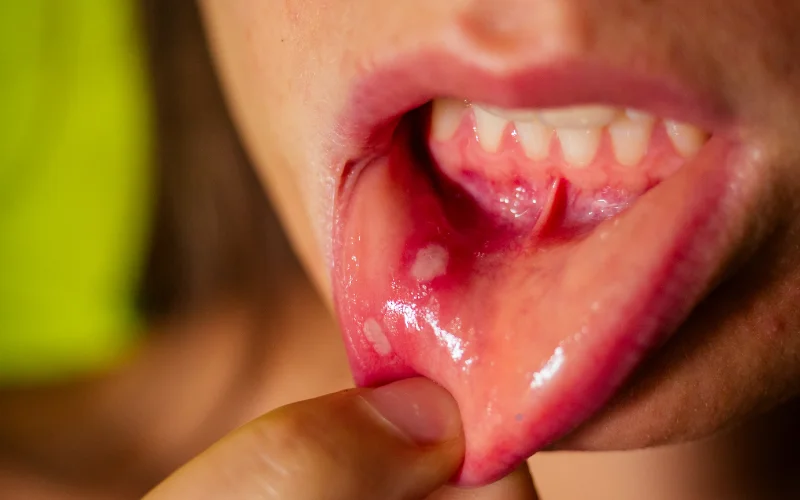
Canker sores are shallow, round ulcers that develop on the soft tissues inside the mouth, such as the inner cheeks, lips, tongue, and gums. Unlike cold sores, canker sores are not contagious and do not occur on the surface of the lips.
Causes of Canker Sores
Several factors can contribute to the development of canker sores, including:
- Injury: Accidental bites, dental work, or abrasive foods can cause trauma to the mouth’s soft tissues.
- Stress: Emotional stress and anxiety can trigger canker sores.
- Nutritional Deficiencies: Lack of essential vitamins and minerals, such as vitamin B12, iron, and folic acid, can lead to canker sores.
- Food Sensitivities: Certain foods, such as citrus fruits, tomatoes, and spicy foods, can irritate the mouth and cause sores.
- Hormonal Changes: Hormonal fluctuations, particularly in women, can increase the likelihood of developing canker sores.
How to Get Rid of a Canker Sore in 24 Hours

Canker sores, also known as aphthous ulcers, are small, painful lesions that appear inside the mouth. While they usually heal on their own within one to two weeks, there are effective methods to expedite the healing process. In this section, we will discuss about ways on how to get rid of a canker sore in 24 hours.
Salt Water Rinse
Salt water can help alleviate pain and promote healing by reducing inflammation and cleansing the sore. Dissolve one teaspoon of salt in a cup of warm water. Swish the solution around your mouth for 15-30 seconds, then spit it out. Repeat this process several times a day.
Baking Soda Paste
Baking soda neutralizes acids and reduces inflammation, helping to speed up the healing process. Mix a small amount of baking soda with water to form a paste. Apply the paste directly to the canker sore using a cotton swab. Do this two to three times a day.
Honey Application
Honey is known for its natural antibacterial and anti-inflammatory properties. Apply a small amount of raw honey directly to the canker sore several times a day. This can help soothe the sore and accelerate healing.
Coconut Oil
Coconut oil has antimicrobial properties that can reduce pain and promote healing. Dab a small amount of coconut oil onto the canker sore using a cotton swab. Reapply several times a day for best results.
Aloe Vera Gel
Aloe vera is known for its soothing and healing properties. Apply a small amount of aloe vera gel directly to the canker sore. Repeat several times a day to help reduce pain and speed up healing.
Chamomile Tea Bag
Chamomile has anti-inflammatory and antiseptic properties that can help soothe canker sores. Steep a chamomile tea bag in hot water, let it cool, and then place it directly on the canker sore for a few minutes. Do this a couple of times a day.
Yogurt
Yogurt contains probiotics that can help balance the bacteria in your mouth, promoting faster healing. Eat a cup of plain yogurt daily to help treat and prevent canker sores.
Milk of Magnesia
Milk of magnesia can help neutralize acids and coat the sore, providing relief. Dab a small amount of milk of magnesia onto the canker sore using a cotton swab. Do this three to four times a day.
Over-the-Counter Treatments
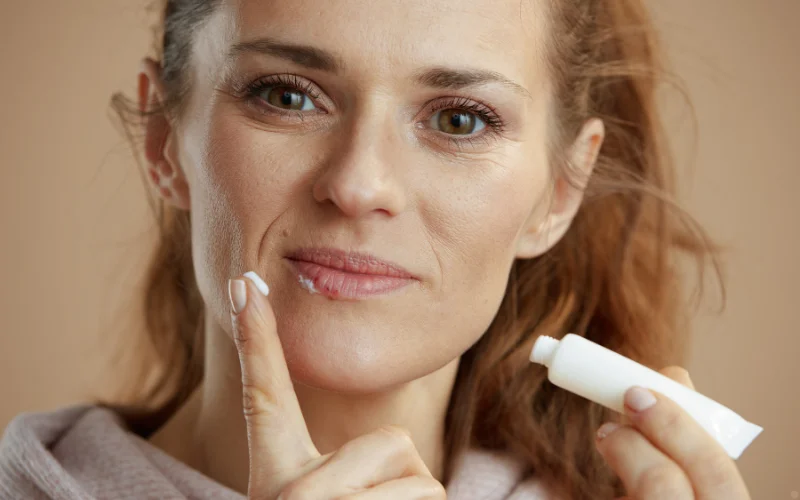
Over-the-counter treatments can be highly effective in providing relief from the pain and discomfort associated with canker sores. These treatments are easily accessible and can expedite the healing process, allowing you to get back to your daily routine with minimal disruption. Below are some commonly used over-the-counter options:
Topical Gels and Ointments
Topical gels and ointments can provide pain relief and create a protective barrier over the sore. Apply a small amount of over-the-counter topical gel or ointment, such as benzocaine or hydrogen peroxide, directly to the canker sore. Follow the instructions on the packaging for best results.
Oral Rinses
Oral rinses containing antiseptic ingredients can reduce bacteria and inflammation. Use an over-the-counter oral rinse containing antiseptic ingredients, such as chlorhexidine or hydrogen peroxide, to rinse your mouth. Follow the instructions on the packaging.
Pain Relievers
Over-the-counter pain relievers can help manage discomfort and reduce inflammation. Take over-the-counter pain relievers, such as ibuprofen or acetaminophen, as directed on the packaging. This can help alleviate pain and reduce swelling.
Oral Patches
Oral patches can provide a protective barrier over the canker sore, reducing pain and promoting healing. Apply the patch directly to the canker sore, following the instructions on the packaging. These patches can provide relief for several hours.
Antiseptic Mouthwash
Antiseptic mouthwash can help reduce bacteria in the mouth, promoting faster healing. Rinse your mouth with an antiseptic mouthwash as directed on the packaging. This can help keep the sore clean and reduce the risk of infection.
How Long Do Canker Sores Last?
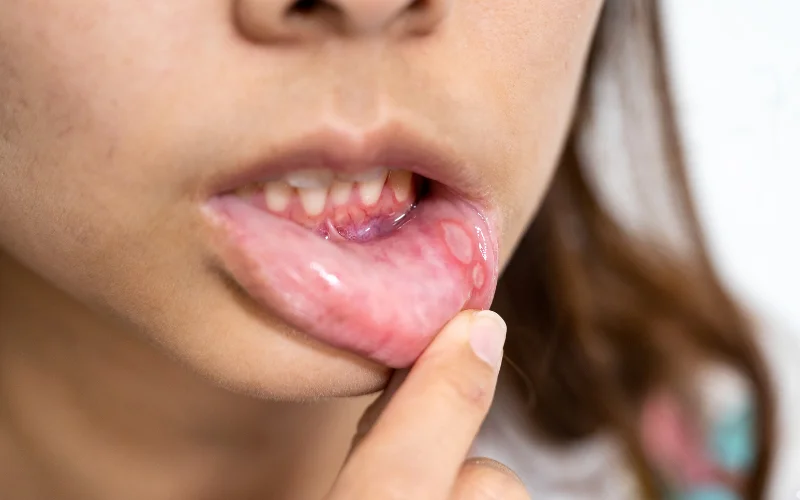
Canker sores typically last for one to two weeks. During the first few days, the pain is usually most intense, making eating and speaking uncomfortable. As the days progress, the pain gradually subsides, and the sore begins to heal. Minor canker sores, which are the most common type, often heal on their own without the need for medical intervention.
However, larger or more severe canker sores, known as major canker sores, can take longer to heal, sometimes lasting up to six weeks. These sores can be more painful and may require medical treatment to manage symptoms and promote healing. If a canker sore persists for more than two weeks or is accompanied by other concerning symptoms, it is advisable to seek medical attention.
Preventive Measures

Preventing canker sores is key to maintaining good oral health and avoiding the discomfort they bring. By following these preventive measures, you can reduce the likelihood of developing canker sores in the future. Additionally, maintaining these habits can help keep your body fit and healthy overall.
Maintain Good Oral Hygiene
- Brush and Floss Regularly: Brush your teeth at least twice a day and floss daily to remove food particles and bacteria.
- Use a Soft-Bristled Toothbrush: A soft-bristled toothbrush can prevent irritation and injury to the mouth’s soft tissues.
Avoid Irritating Foods
- Identify Trigger Foods: Keep track of foods that seem to cause canker sores and avoid them.
- Opt for Gentle Foods: Choose foods that are soft and non-acidic to prevent irritation.
Manage Stress
- Practice Relaxation Techniques: Engage in activities such as meditation, yoga, or deep breathing exercises to reduce stress.
- Maintain a Healthy Lifestyle: Ensure you get adequate sleep, exercise regularly, and maintain a balanced diet to support overall well-being.
When to Get Help
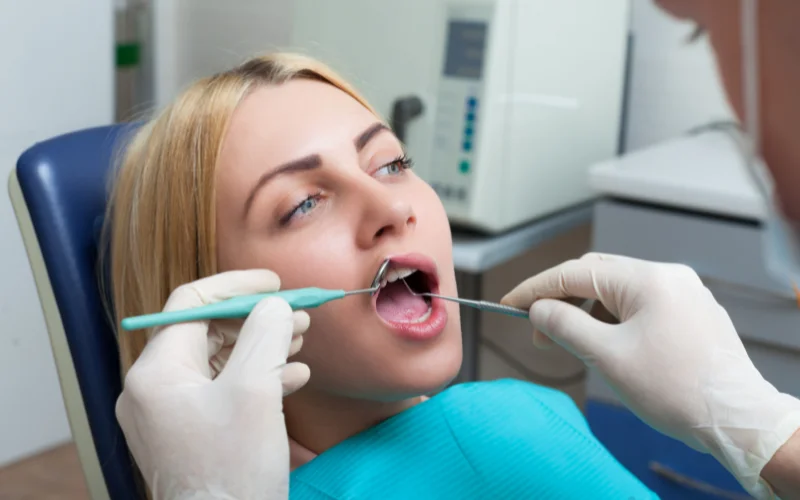
While most canker sores heal on their own within one to two weeks, there are instances when medical attention is necessary. If a canker sore persists for more than two weeks, is unusually large, or is accompanied by severe pain, fever, or difficulty swallowing, it is important to consult a healthcare professional. Additionally, if you experience frequent outbreaks of canker sores or notice sores spreading to other areas of your mouth, seeking medical advice can help identify any underlying conditions and provide more targeted treatment options. Early intervention can prevent complications and ensure proper management of symptoms.
Conclusion
Canker sores can be painful and inconvenient, but with the right approach, you can significantly reduce their duration and discomfort. By utilizing home remedies, over-the-counter treatments, and preventive measures, you can learn how to get rid of a canker sore in 24 hours. Remember to maintain good oral hygiene, avoid irritating foods, and manage stress to prevent future occurrences. If canker sores persist or worsen, consult a healthcare professional for further evaluation and treatment.
FAQs
1. Can canker sores be prevented?
Yes, canker sores can often be prevented by maintaining good oral hygiene, avoiding irritating foods, managing stress, and ensuring adequate nutritional intake.
2. Are canker sores contagious?
No, canker sores are not contagious. They are different from cold sores, which are caused by the herpes simplex virus and can be spread through direct contact.
3. When should I see a doctor for a canker sore?
You should see a doctor if your canker sore is unusually large, persists for more than two weeks, causes severe pain, or is accompanied by other symptoms such as fever or difficulty swallowing.






